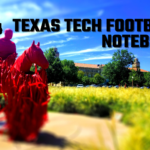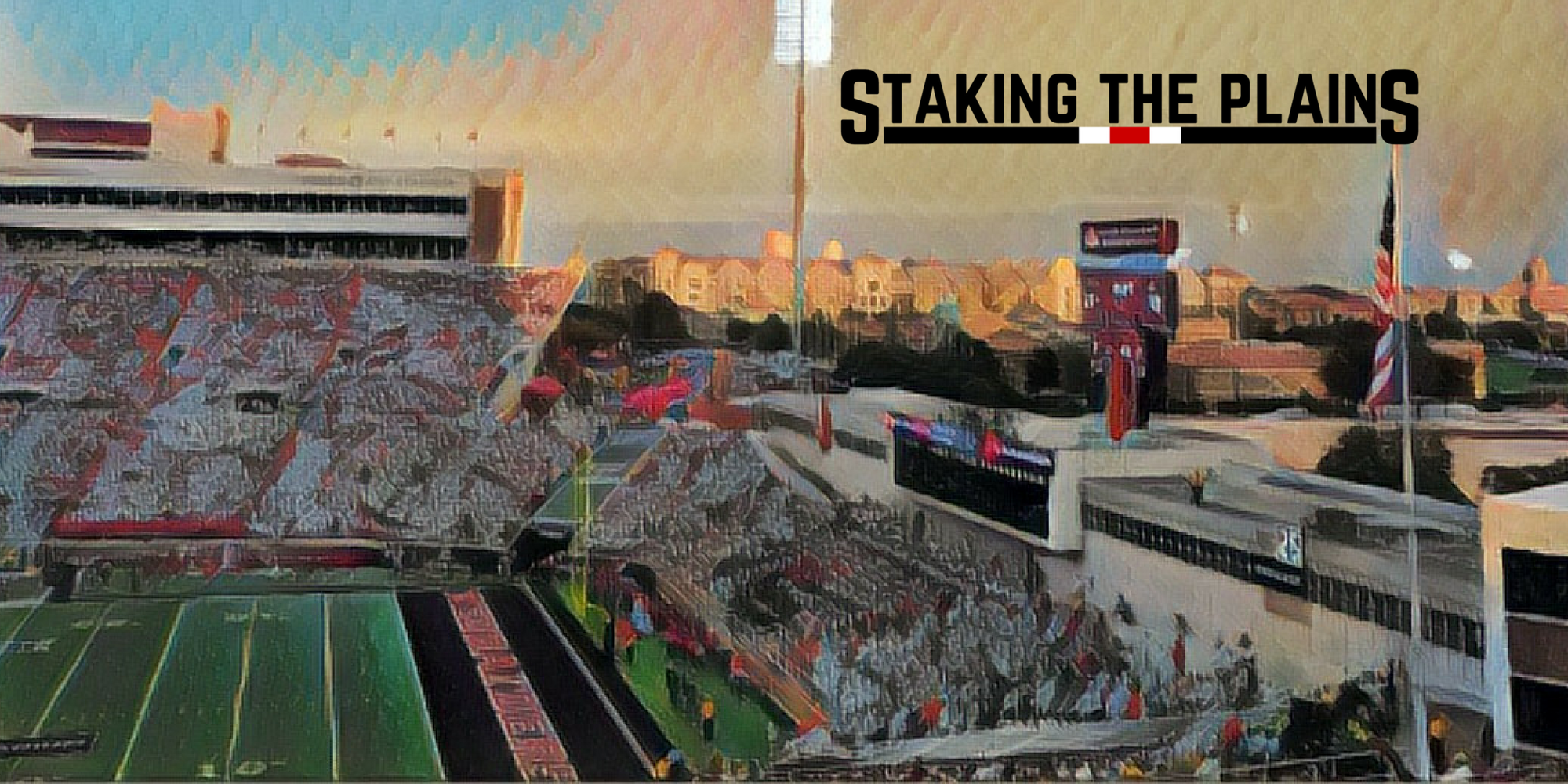About a week or so ago I was reading this Nautilus article by Chelsea Wald about how to be lucky. I don’t think that I’ve ever given the idea of “luck” a lot of thought because it isn’t something that I think about, but it occurred to me that I think a lot of fans of Texas Tech football tend to see the program as being “unlucky”. Or maybe better described as just one more thing happening to the program. In any event, I read the article wondering how one changes his or her luck and quickly realized that luck is a lot of times a manifestation of one’s perception.
Psychology studies have found that whether you identify yourself as lucky or unlucky, regardless of your actual lot in life, says a lot about your worldview, well-being, and even brain functions. It turns out that believing you are lucky is a kind of magical thinking—not magical in the sense of Lady Luck or leprechauns. A belief in luck can lead to a virtuous cycle of thought and action. Belief in good luck goes hand in hand with feelings of control, optimism, and low anxiety. If you believe you’re lucky and show up for a date feeling confident, relaxed, and positive, you’ll be more attractive to your date.
Feeling lucky can lead you to work harder and plan better. It can make you more attentive to the unexpected, allowing you to capitalize on opportunities that arise around you. In a study comparing people who consider themselves lucky or unlucky, psychologist Richard Wiseman of the University of Hertfordshire, author of the 2003 book The Luck Factor, asked subjects to count the pictures in a newspaper. But there was a twist: He put the solution on the second page of the newspaper. “The unlucky people tended to miss it and the lucky people tended to spot it,” he writes.
It had never occurred to me that luck was about your perception of the world and your desire to take advantage of opportunity more than anything else. As mentioned above, it seems like there’s been a bit of a bad luck streak, whether that be with the football team or certain events around the football team: coaches leaving, players transferring, the best player declaring for the draft, a losing record, etc. If there was a reason to be depressed, Texas Tech football seemed to hit the mark on all of them.
I generally accept my fate, regardless of the good or the bad and don’t rack anything up to good luck or bad luck, it’s just the way things are. But I get the feeling that fans feel like Texas Tech is in a bad spot. That Texas Tech has had an incredible string of bad luck. Here’s the problem with that train of thought:
More difficult, perhaps, is to learn how to not dwell on bad luck. Studies have found that people who are victims of assaults and accidents tend to ruminate on questions like “Why me?” or “What did I do wrong?” This strategy is adaptive only if the victim can learn something that will help them avoid a similar disaster in the future. But that’s often not the case, and people are left with envy, self-blame, and useless, invasive thoughts.
I don’t know whether or not this thought of self-doubt has become part of team, but I think it has certainly become part of the fanbase. There is this “woe is me” sort of attitude that I see in the comments when something happens. And being an optimist, I never understood that sort of attitude.
It’s impossible for me to change the attitudes of individuals and I won’t do that here. I’ve never done that. But I do think that there is something to belief systems and team building and taking advantage of opportunity. Even Seneca knew, “Luck is what happens when preparation meets opportunity.”1 To some extent, I think that the team has put these events out of their mind. You can’t change what happened and you can’t blame anyone else, but you can control yourself and what you do. Luck, quite simply, is about perception2:
The key to deciding whether an event is lucky or unlucky is the comparison you make between the actual event and the “counterfactual” alternative you’re imagining, Teigen says. The people asking “Why me?” are making an upward comparison to other people who weren’t assaulted or who avoided an accident. The people who feel lucky to have survived are comparing themselves downwardly to people who had a worse fate. Both are valid interpretations, but the downward comparison helps you to hold on to optimism, summon the feel-good emotion of gratitude, and to weave a larger narrative in which you are the lucky protagonist of your life story.
A few people have mentioned that the 2017 season doesn’t bode well and given the circumstances surrounding this team, I can certainly understand that.
Patrick Mahomes, the teams best player by far, decides to chase his dream and declare for the NFL Draft. The upside here is Texas Tech most probably has a quarterback that will be more traditional in that he’ll go through his progressions and be a more mechanical and precise quarterback.
Breiden Fehoko, the team’s highest rated recruit, decides to transfer and leaves the defensive tackle position bare. Alternatively, I firmly believe that Texas Tech has their most active and best defensive linemen on this team and I haven’t seen some of them play. When Kevin Patrick said that the teams best defensive linemen are still on the team, I agree.
Speaking of Kevin Patrick, Patrick has left to be the defensive line coach at North Carolina State. Maybe, just maybe, this gives David Gibbs the opportunity to upgrade at that position. Or maybe it provides for a coach to come in and knowing the situation that Texas Tech is in, that he’ll coach his tail off.
Or how about DeShaun Foster leaving to go back to UCLA? The running back position wasn’t anything great and the recruiting at running back may have been the most messed up that I can remember. Only recruiting big running backs proved to be a disaster. Desmond Nisby is a big running back and I do think he’ll be able to help when yards are tight, but I don’t think we can be expecting a 1,000 yard rusher. Jabbar Juluke allows this team to reset, make some connections in Louisiana and have actual productive running backs.
Or the firing of Lee Hays with the upgrade of Brandon Jones. By advanced metrics, Jones had a better line for the two years he was at Cal than Hays had in year four for Texas Tech. There should have been depth at that position.
These are either bad event or opportunistic events and if the team is focused on the opportunity, then maybe that changes how the season plays out. And there’s no doubt that there’s a lot of you who think that changing luck or perception isn’t going to change anything with this team. The results are most likely already written. There’s no way this team finishes higher than 8th or 9th or whatever. That there’s no way that the defense improves. That the likely scenario is that we’re looking at a new head coach in 2018 or something to that effect. There’s no point in being optimistic or hopeful or whatever. I certainly get that.
But my hope is that the team isn’t thinking that way. There’s no way that Rusty Whitt is going to let that happen and there’s no way that Kliff Kingsbury, the kid from New Braunfels who was never really offered by much of anyone is going to just concede. He never played that way and I don’t think that’s in his genetic make-up. Even if you don’t want to believe that changing luck for this team, maybe you can change your luck in your own life:
“I’m a greater believer in luck, and I find the harder I work the more I have of it.”3
———–
1 It is disputed as to whether or not Seneca the Younger actually said this quote.
2 Karl Halvor Teigen, a emeritus professor at the University of Oslo, is mentioned in the article as having done much of the research to gain insight as to what people consider to be lucky or unlucky.
3 Thomas Jefferson knew what he was talking about.









